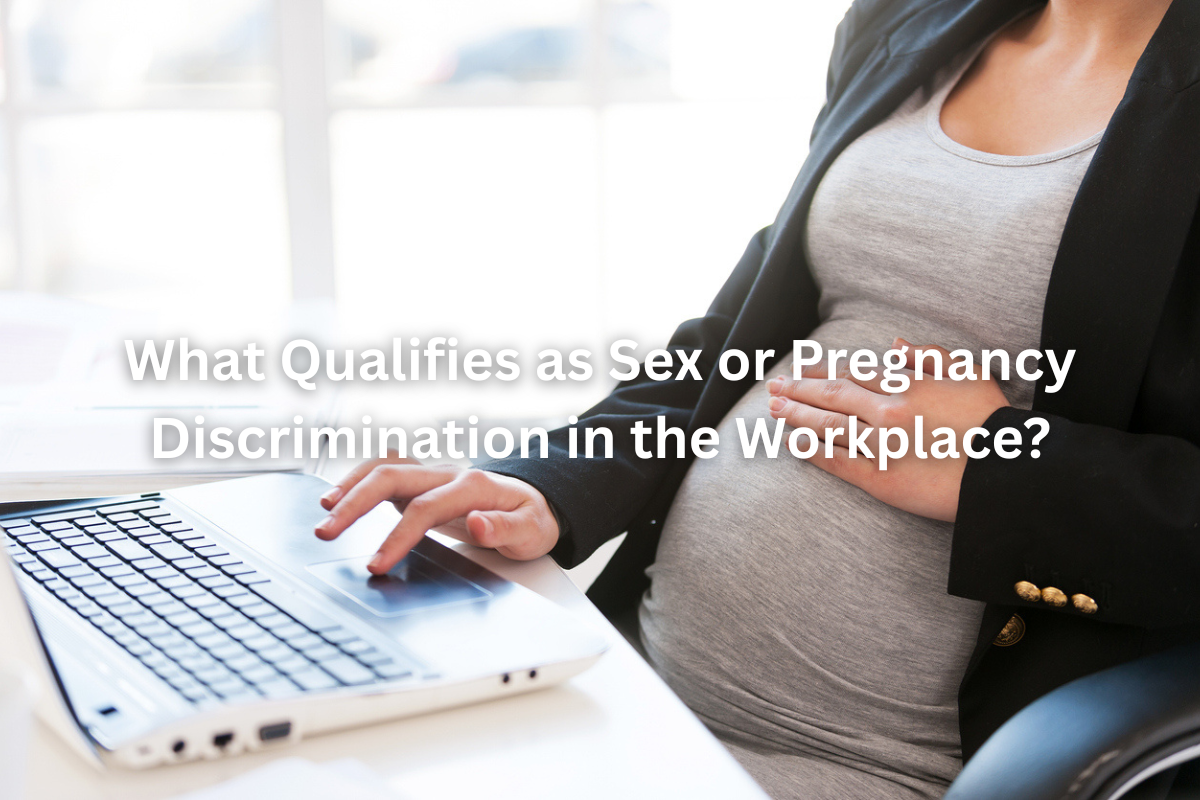Sex and Pregnancy Discrimination: What You Should Know
Sex and pregnancy discrimination are unfortunately still common in today’s workplaces, despite decades of federal and state protections. These forms of discrimination can take many forms, from hiring and pay inequities to wrongful termination after announcing a pregnancy. Understanding what qualifies as unlawful discrimination is the first step toward protecting your rights and holding employers accountable.

Federal and State Protections
Under Title VII of the Civil Rights Act of 1964, it is unlawful for employers to discriminate against employees based on sex, gender, pregnancy, childbirth, or related medical conditions. The Pregnancy Discrimination Act of 1978 (PDA) clarified that discrimination on the basis of pregnancy is a form of sex discrimination.
In California, the Fair Employment and Housing Act (FEHA) goes even further, explicitly prohibiting discrimination based on sex, gender identity, sexual orientation, and pregnancy. Employers with five or more employees must also comply with FEHA’s requirements, including providing pregnancy disability leave of up to four months.
Examples of Sex Discrimination
- Hiring and Promotion: Refusing to hire a woman because of her gender or denying promotions to women in favor of less-qualified men.
- Pay Inequality: Paying women less than men for substantially equal work, which also violates the Equal Pay Act.
- Job Assignments: Assigning less favorable tasks, denying training, or excluding women from leadership opportunities.
- Different Standards: Enforcing stricter dress codes or performance standards for women than for men.
Examples of Pregnancy Discrimination
- Termination or Demotion: Adverse actions after an employee discloses her pregnancy.
- Refusing Accommodations: Denying bathroom breaks, light duty, or modified schedules.
- Forcing Leave: Requiring leave when the employee is able and willing to work.
- Blocking Advancement: Assuming childcare responsibilities will interfere with performance.
Hostile Work Environment
Not all discrimination comes through official actions like firing or demotion. A workplace can also become unlawful if it is filled with hostile comments, jokes, or treatment related to sex or pregnancy. For instance:
- Repeatedly mocking someone’s ability to do their job while pregnant.
- Making derogatory jokes about women in leadership roles.
- Ignoring or belittling pregnancy-related health concerns.
These behaviors, if severe or pervasive enough, can create a hostile work environment that violates both Title VII and FEHA.
Retaliation Is Also Illegal
Employers cannot punish you for reporting or opposing discrimination. If you face retaliation—such as being demoted, written up, or excluded after complaining—you may have an additional legal claim.
Why Legal Representation Matters
At Lawless, Lawless & McGrath, we’ve represented employees across San Francisco in sex and pregnancy discrimination cases for decades. We understand how emotionally and professionally devastating these situations are. Our attorneys fight for your rights under FEHA, the Pregnancy Disability Leave Law, the Family and Medical Leave Act (FMLA), and the Equal Pay Act.
If you believe you’ve been targeted because of your sex or pregnancy, you don’t have to face it alone. Legal guidance can help you understand your rights, document your case, and pursue justice.
